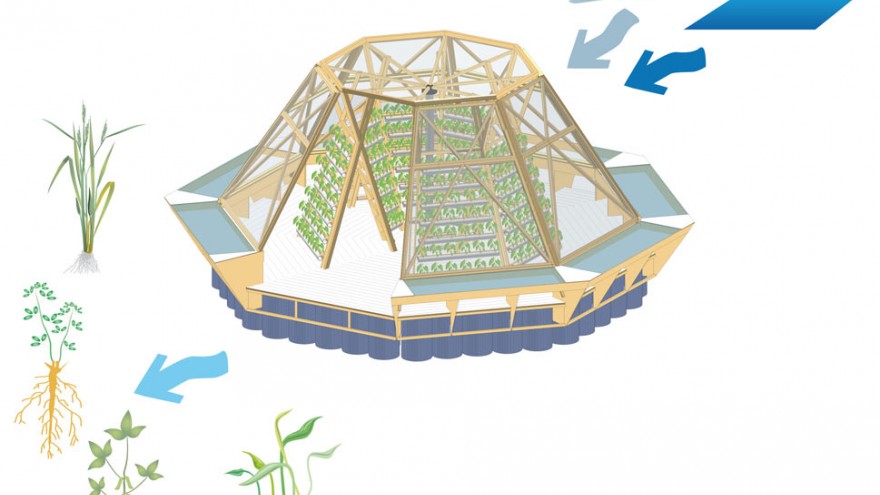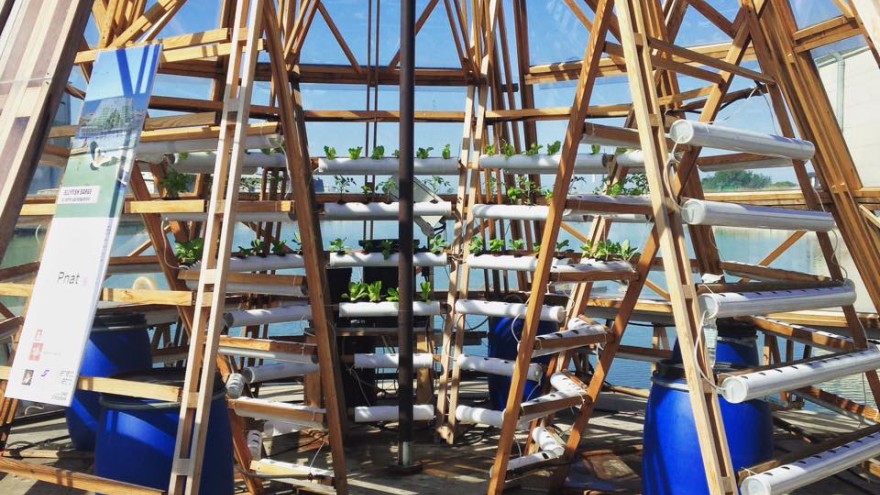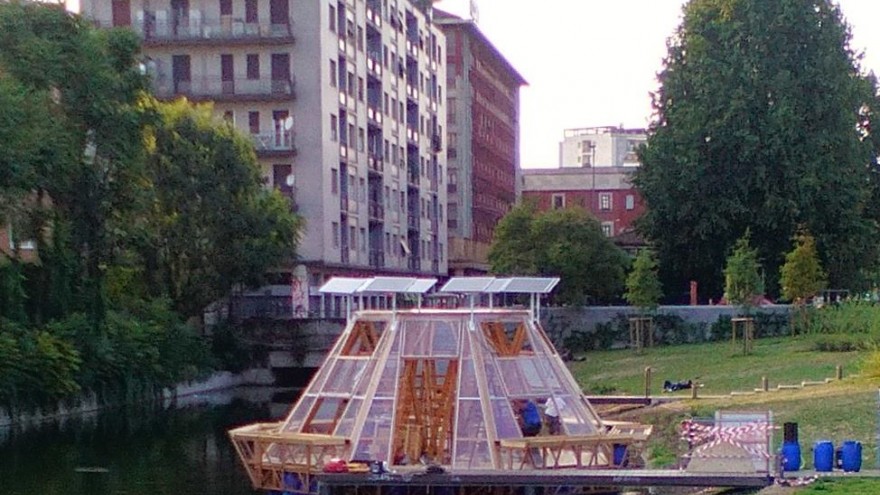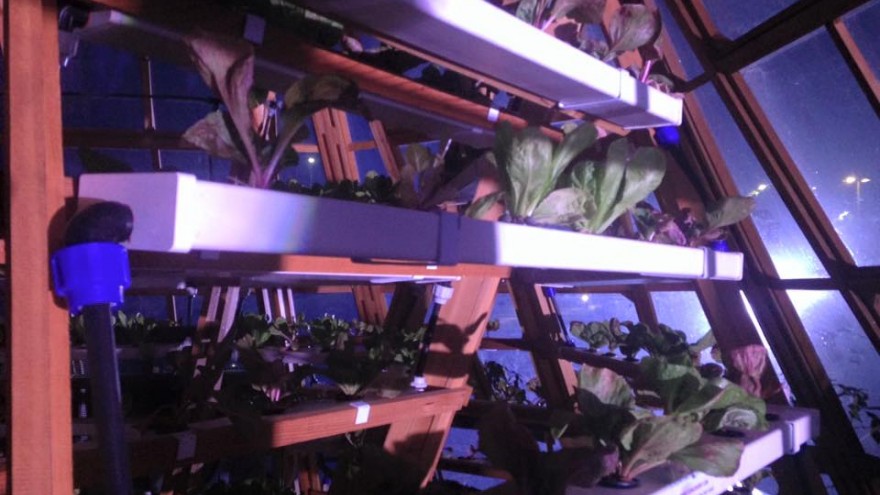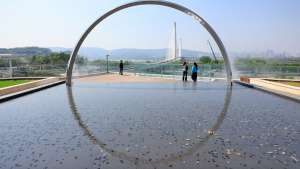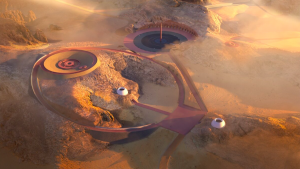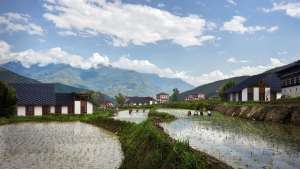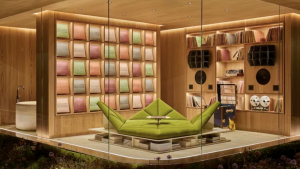From the Series
Pnat, an Italian think tank made up of designers and biologists, have designed floating greenhouses, which they call JellyFish Barges, as a way to help provide sustainable food-supply solutions to coastal cities where resources are scarce.
The floating greenhouses are modular, octagonal rafts made of timber, recycled materials and glass. Each JellyFish Barge is autonomous and is able to purify seawater, grey water or polluted water into water that can be used for the cultivation of crops. Cleverly designed hydroponic watering systems use significantly less water than traditional farming.
The Jellyfish Barges each have a 70 square metre base, which is kept buoyant on recycled plastic drums. Up to 150 litres of water per day is supplied to the plants via desalination units powered by the sun. Pnat estimate that a single barge can provide enough produce to feed two families.
Food production puts heavy demands on the environment: water, nutrients from the soil and space are all scarce resources in many modern cities, particularly in the global south. Pnat’s design mimics nature and is an innovative solution to future urban agriculture pressures. The closed system does not pollute the environment or suffer from environmental changes.
We recently wrote about Nemo's Garden: underwater biospheres, also designed by Italians, that could be used to cultivate crops under the ocean.

